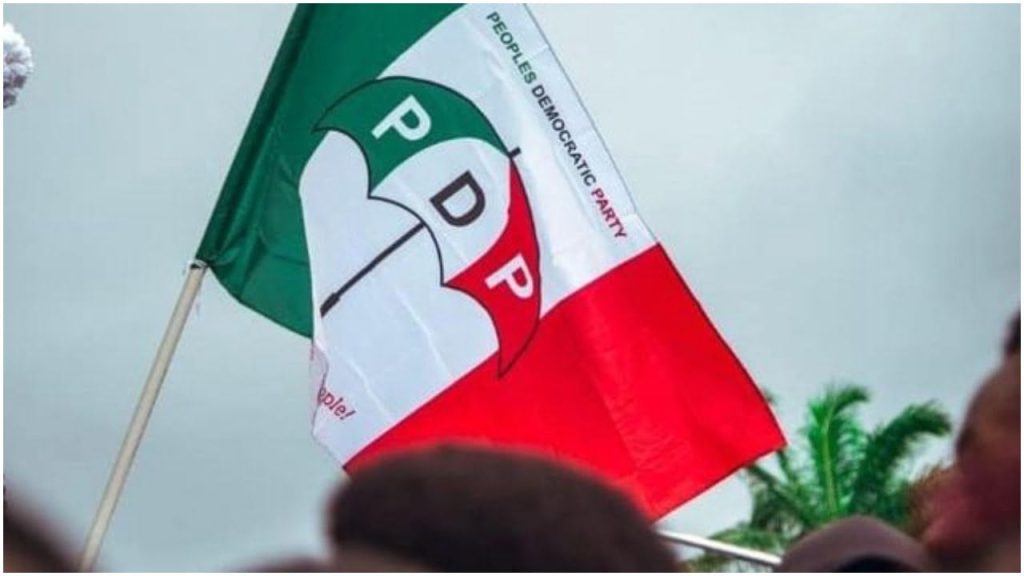The political landscape in Rivers State, Nigeria, is currently embroiled in a power struggle within the Peoples Democratic Party (PDP), marked by escalating tensions and factional divisions. The conflict stems from a recent court ruling that nullified the party’s ward, local government, and state congresses held in 2024, effectively invalidating the elected executive committee. This decision has created a vacuum in leadership, leading to the formation of an acting executive committee and a subsequent clash with the existing party structure. The situation reached a boiling point on Thursday when police barricaded access to the PDP secretariat in Port Harcourt, the state capital, preempting a potential takeover by the newly formed acting committee. The presence of police and throngs of party supporters underscored the volatile atmosphere and the deep divisions within the party.
The core issue revolves around the legitimacy of the acting executive committee and its authority to assume control of the party machinery. Aaron Chukwuemeka, representing the restrained elected executive, publicly criticized the increasing number of legal battles plaguing the PDP, urging Governor Siminalayi Fubara to intervene and prioritize restoring peace within the party. The state’s legal advisor, Kingsley Chuku, confirmed the party’s intention to appeal the court ruling once the official records become available, further highlighting the legal complexities of the situation. Significantly, Chukwuemeka and Chuku accused members of the acting executive committee of having ties to the opposing All Progressives Congress (APC), questioning their loyalty and right to lead the PDP. These accusations add another layer of complexity to the intra-party conflict, suggesting potential external influences and motivations behind the power struggle.
On the other side of the divide, Robinson Nname-Ewor, the acting chairman of the PDP, announced the postponement of the planned takeover of the secretariat, citing a desire to avoid further escalation of the crisis. However, this conciliatory gesture was accompanied by a list of demands aimed at resolving the internal conflict. Nname-Ewor’s demands include the reinstatement of the party leadership under Governor Fubara and the recognition of the acting executive committee at the state level. This indicates a strategic move to negotiate from a position of strength, using the threat of a takeover as leverage to secure their position within the party structure. The acting chairman also revealed plans to establish a disciplinary committee to investigate alleged anti-party activities, particularly those related to the 2023 general elections, signaling a potential purge of dissenting voices and a consolidation of power.
The competing claims to authority and the underlying distrust between the factions underscore the deep-seated nature of the crisis. The legal challenge to the party congresses and the subsequent formation of an acting executive committee have exposed pre-existing fault lines within the Rivers PDP. The public accusations of affiliation with the opposing APC further complicate the situation, raising concerns about the motives and loyalties of key players. The decision to postpone the takeover of the secretariat, while seemingly a de-escalation tactic, is coupled with demands that, if unmet, could reignite the conflict. The planned disciplinary committee also adds another dimension to the power struggle, potentially targeting those who oppose the acting executive committee’s authority.
The situation in Rivers State serves as a microcosm of the broader challenges facing political parties in Nigeria. Internal power struggles, legal battles, and accusations of cross-party affiliations are common features of the political landscape. These conflicts often undermine party unity, distract from policy debates, and weaken the ability of parties to effectively represent the interests of their constituents. The Rivers PDP crisis highlights the need for stronger internal party democracy, transparent processes for resolving disputes, and a commitment to putting the interests of the party and the people above personal ambitions.
The ongoing tensions and unresolved grievances within the Rivers PDP suggest that the crisis is far from over. The temporary suspension of the secretariat takeover represents a fragile truce, not a lasting resolution. The demands put forward by the acting chairman, coupled with the threat of disciplinary action against perceived opponents, indicate a continued power struggle. The party’s ability to navigate this crisis and emerge stronger will depend on the willingness of both sides to engage in constructive dialogue, compromise, and prioritize the long-term interests of the PDP and the people of Rivers State. The intervention of respected party elders and neutral mediators may be crucial in facilitating a peaceful resolution and preventing further escalation of the conflict.














